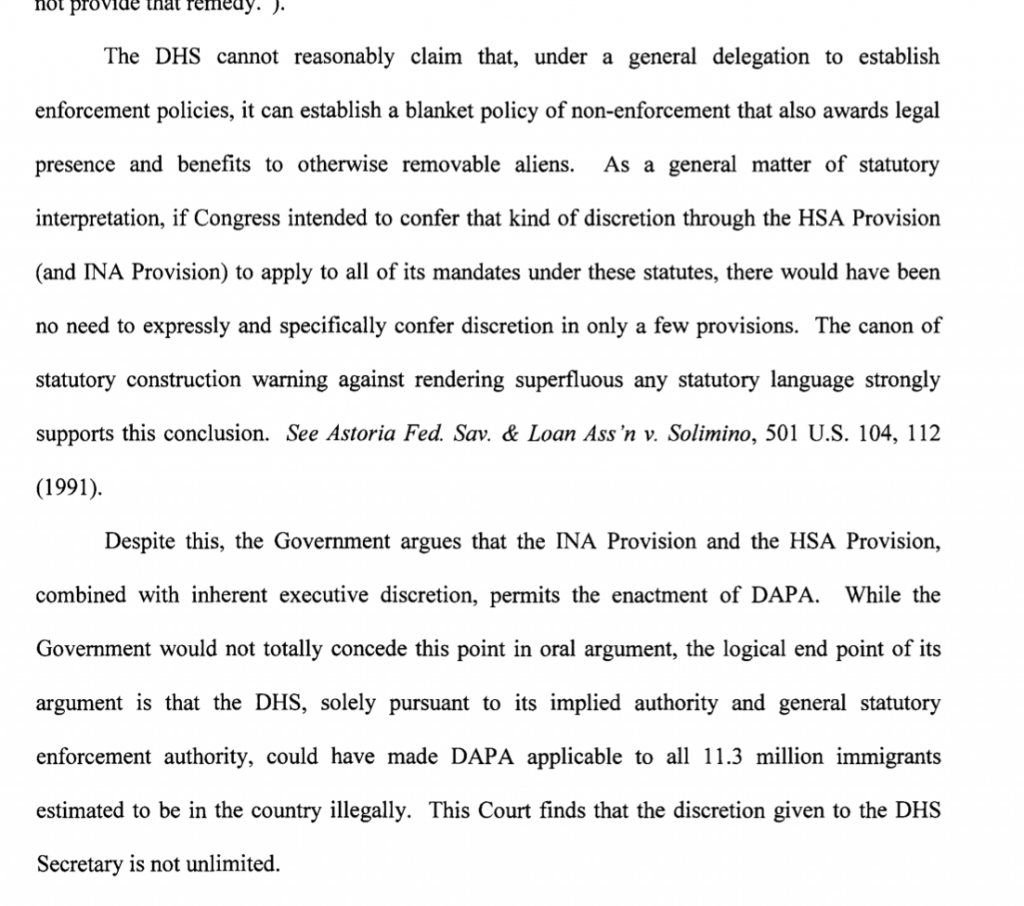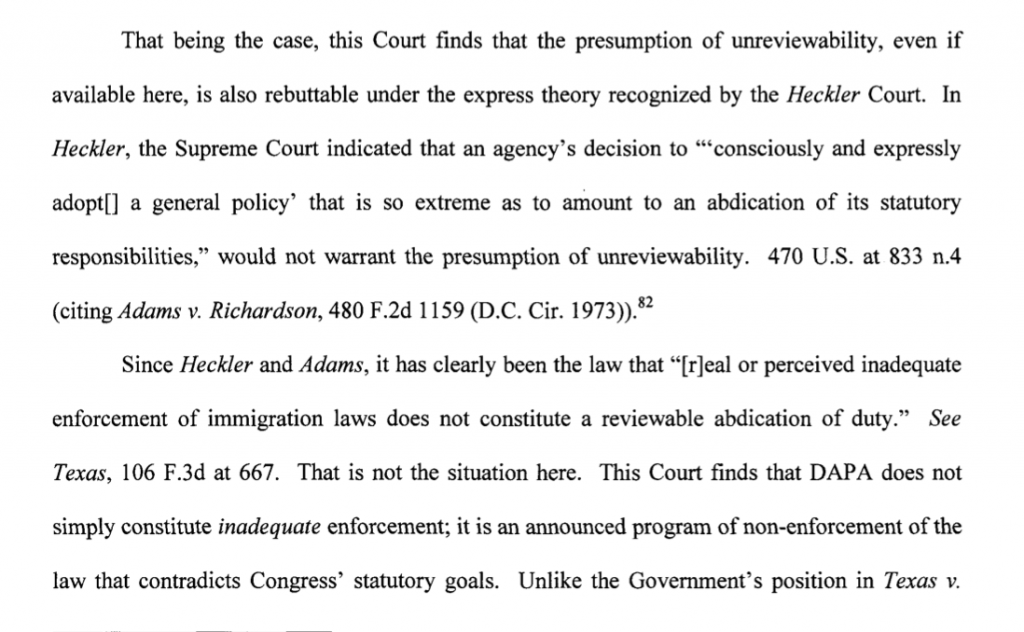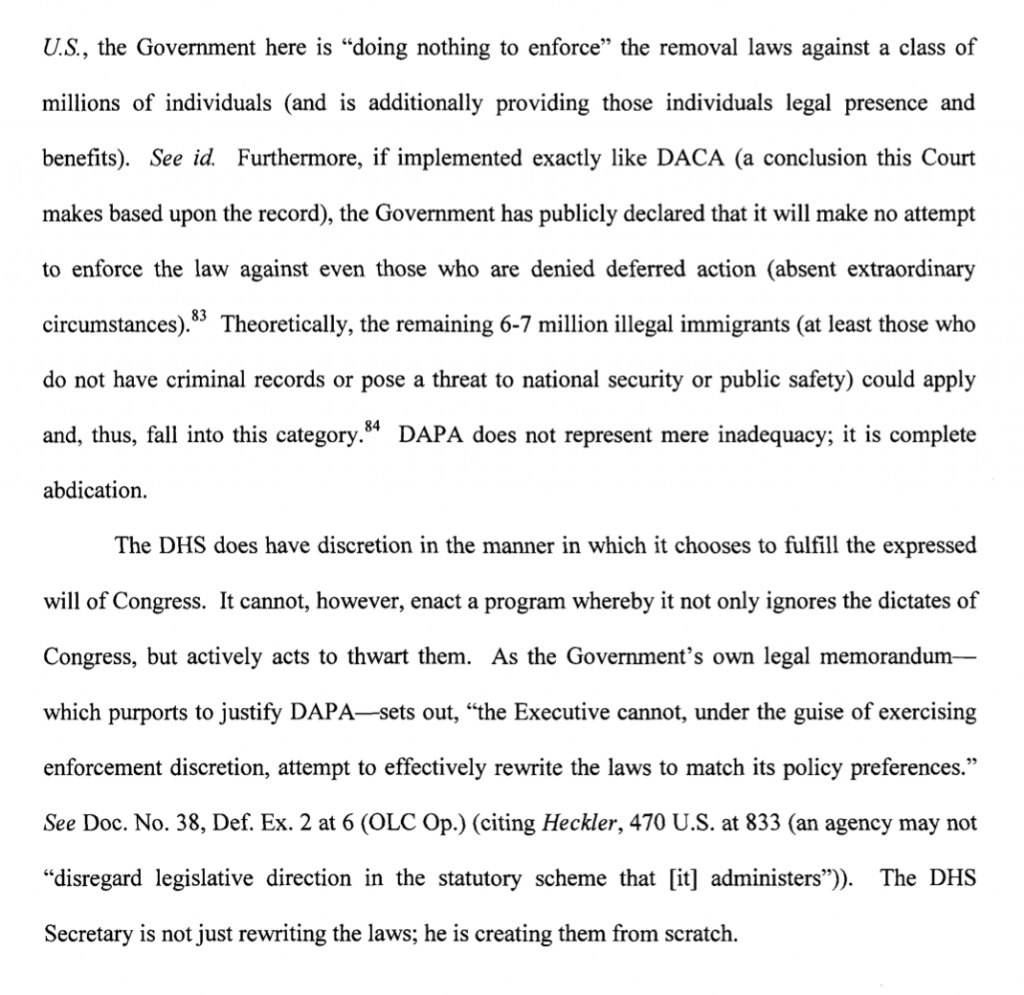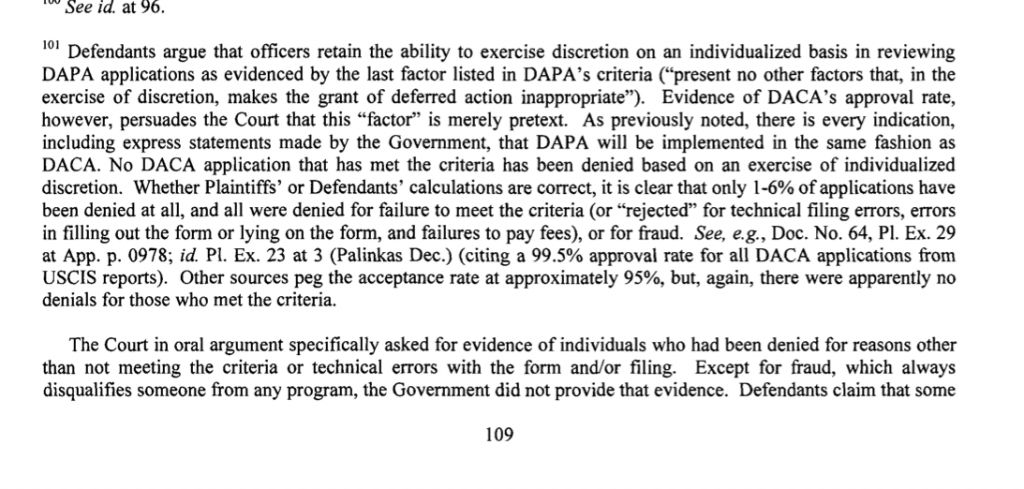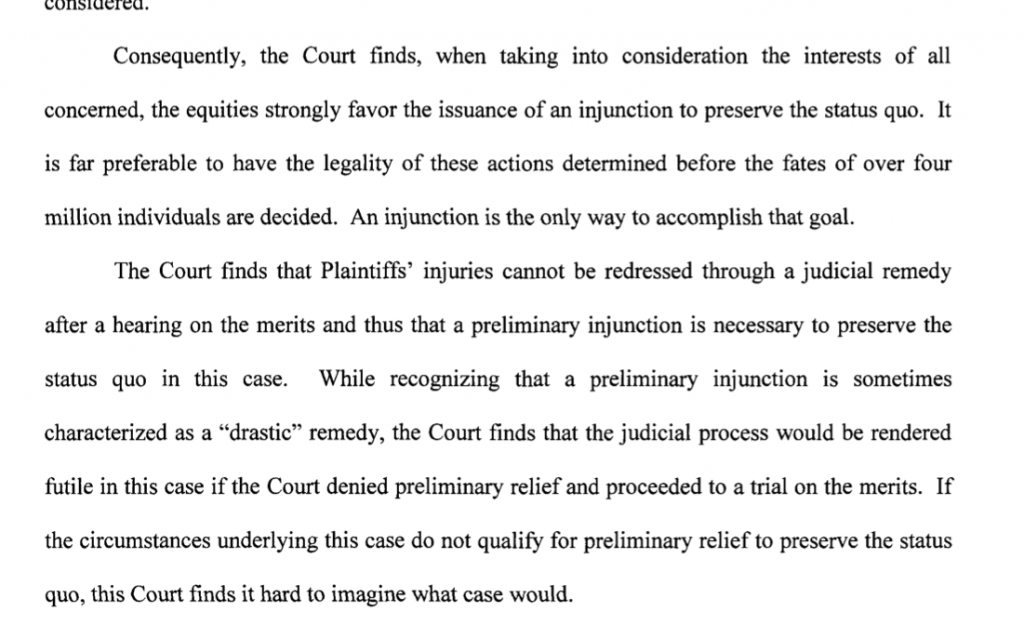At 10:22 p.m., Judge Hanen issued his long-awaited decision in Texas v. United States, temporarily enjoining DHS from implementing DAPA. (Disclosure: I filed a brief in support of Texas.) The injunction is here. The opinion is here. The 123-page decision is extremely thorough. It spends over 60 pages on standing, and the remainder on the procedural APA claim. It doesn’t even address the Take Care clause.
The opinion has tw0 main parts. First, it finds that the states have standing. Second, it concludes that DHS lacks the discretion to institute DAPA.
The standing analysis tracks closely the arguments advanced by Texas, which I addressed here. In short, DAPA provides legal presence to aliens, who can then obtain drivers licenses in the states. This court concluded (correctly in my mind) that these licenses impose a cost on the states. The DOJ previously argued in the 9th Circuit that it was unconstitutional for Arizona to exclude DACA beneficiaries from receiving drivers licenses. The court found a similar analysis estops the government from claiming Texas can change its laws to deny DAPA beneficiaries licenses. The court (correctly in my mind) rejects the argument that DAPA will cause an influx of illegal immigration. This argument was too speculative. The standing analysis is really thorough. Contrary to what you may think, I am fairly confident this will stand up on appeal. The merits, is another story.
The merits analysis begins on p. 68. On p. 92, the court explains that Congress knows how to “delegate discretionary authority,” and has not done so here.
On p. 98, the court finds a “complete abdication” under Heckler v. Cheney.
The court also makes a point I address in Part II of my series of DAPA–the Secretary, and not individual officers set the the policies. There is no individual discretion (p. 108).
In an extended footnote, the court explains that DHS could not identify a single applicant denied for DACA due to discretionary factors.
Although the court doe snot reach the constitutional issue, the “abdication” analysis under the APA claim mirrors what a constitutional “Take Care” analysis would look like. So the court tipped his hand how the constitutional analysis would come out.
The final portion of Judge Hanen’s opinion stresses over, and over again, that a preliminary injunction is warranted to maintain the status quo. This is an important point that has been stressed with the same-sex marriage litigation. Allowing 4 million people to sign up for DAPA cannot be undone. The President has said so himself. From p. 121:
I’m certain much of the analysis you will read focuses on Judge Hanen’s previous writings about immigration and executive power. The 123 page decision is extremely thoughtful and comprehensive. Unlike the drivel from the District Court in Pennsylvania that reached out to decide an issue that was not before him, Judge Hanen has authored an authoritative and measured analysis of a really difficult legal issue.
What next? As I noted in this post in December, once the preliminary injunction issues, this case will rocket up to the 5th Circuit, and to SCOTUS by the end of this term. The Court will have to resolve this issue, and cannot let it linger on the certiorari docket till next term. As if this term couldn’t get any more intense!
